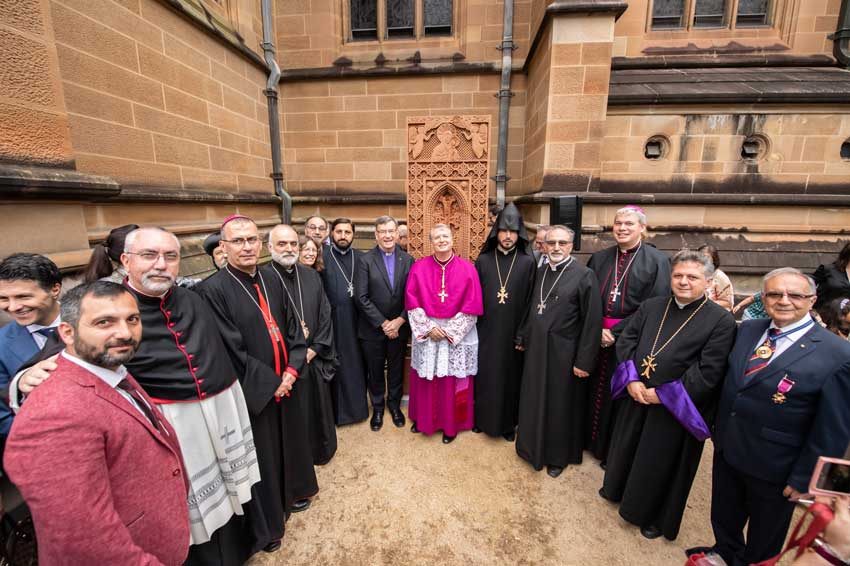
The Australasian-Middle East Christian Apostolic Churches Conference (AMEC) -which include representatives from the Armenian Catholic Community in Australia- are calling on Australians “to pray unceasingly” for peace in the Nagorno-Karabakh region.
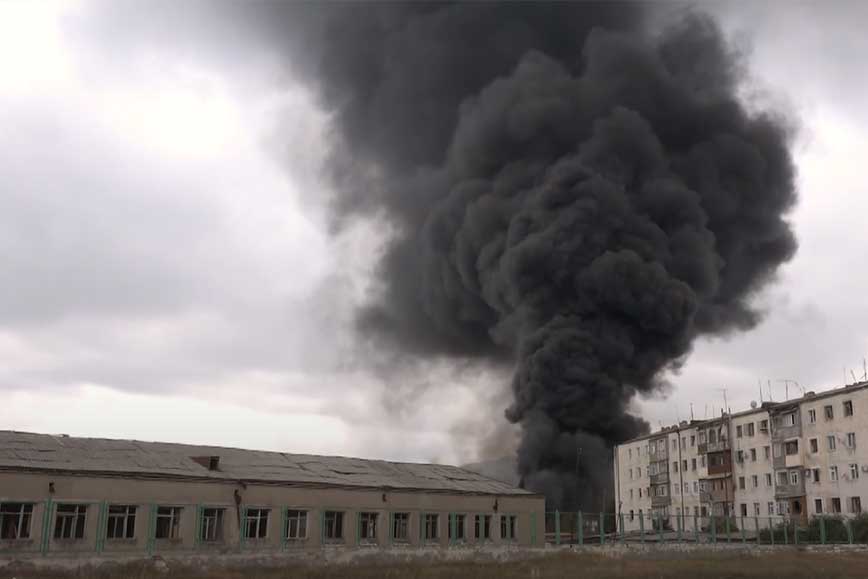
The Nagorno-Karabakh region of the Caucasus is currently the focal point of a bitter border conflict between Armenia and Azerbaijan. The war arose after border skirmishes in September escalated into the deadliest conflict since the First Nagorno-Karabakh War in the 1990s; a war that arose after the collapse of the Soviet Union and the power vacuum left between successor states of the region and the historical ethnic tensions held between each other.
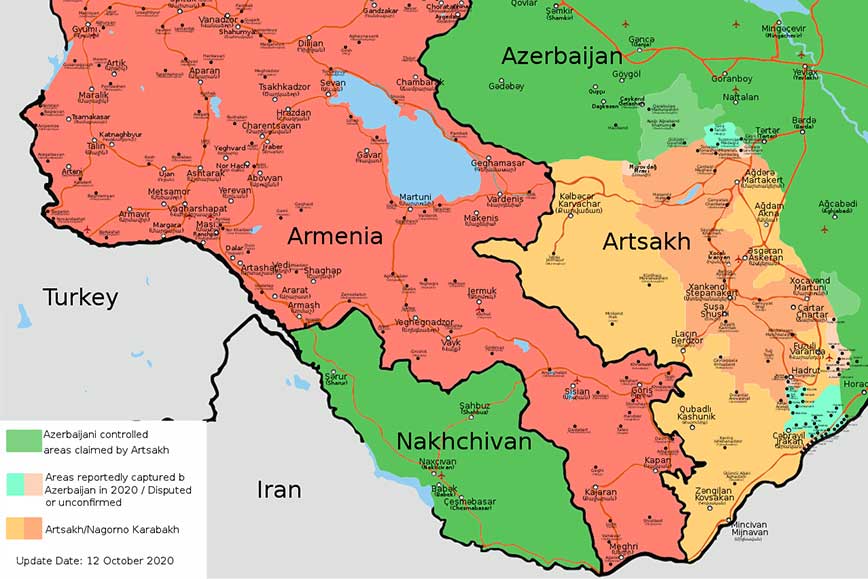
CC BY-SA 4.0 https://en.wikipedia.org/wiki/2020_Nagorno-Karabakh_conflict#/media/File:QarabaghWarMap(2020).svg
Nagorno-Karabakh, which is de jure a part of Azerbaijan, has de facto existed since 1994 as the unrecognised separatist state: the Republic of Artsakh – backed by the Republic of Armenia.
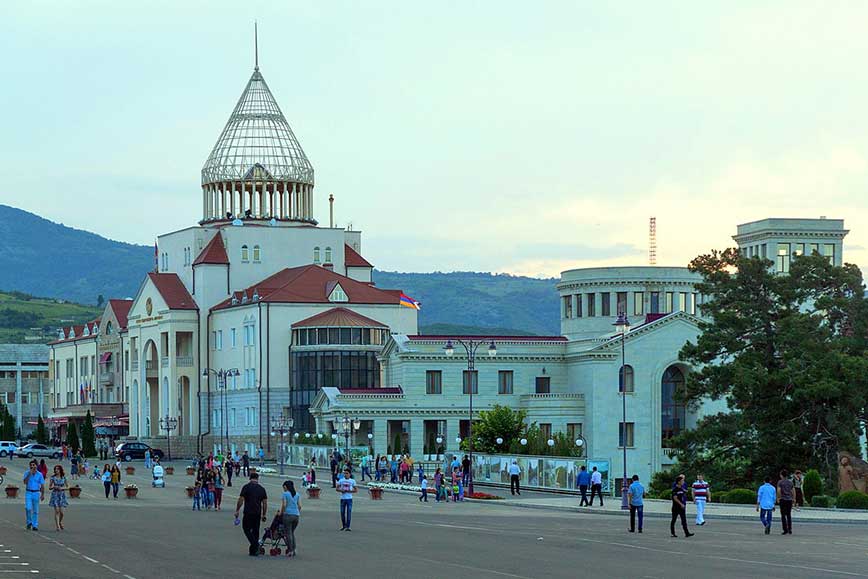
The ethnic majority of the Republic of Artsakh is Armenian – but not without the displacement of a significant minority of Kurds and Azerbaijanis since 1994 from 20 per cent to less than 1 per cent in 2020. The Azerbaijani Government has claimed acts of ethnic cleansing by Armenian forces in the First Nagorno-Karabakh War citing incidents such as the Khojay Massacre.
military activity in the region have impacted upon large numbers of Christians
Recent developments in the conflict have reported Azerbaijani forces, backed by neighbouring Turkey, capturing several villages in the region. Many fear retaliatory reprisals against Christian Armenians by Azerbaijanis from actions in the First Nagorno-Karabakh War in the 90s.
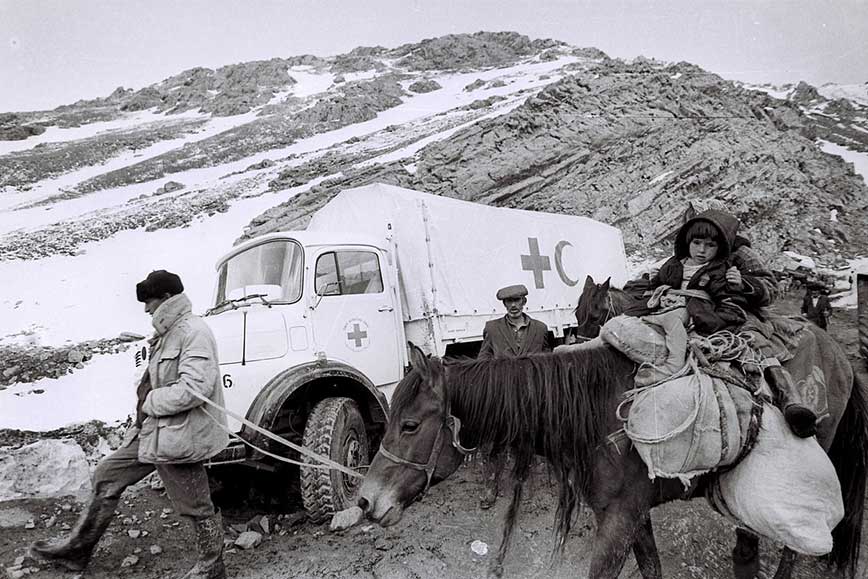
“The present disturbances and military activity in the region have impacted upon large numbers of Christians,” wrote the AMEC.
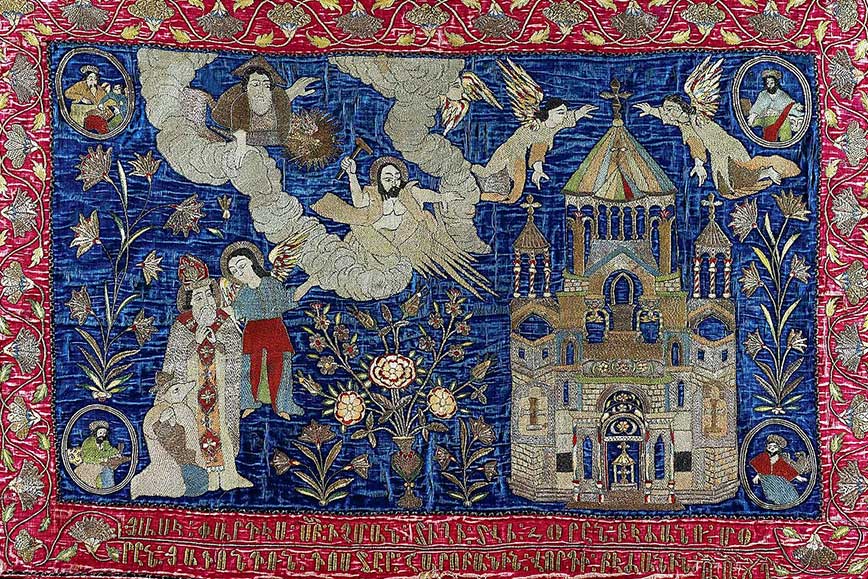
Armenia, the oldest Christian nation on Earth, has been subject to historical genocides by non-Christian neighbours. The most deadly Armenian Genocide in the early 20th Century by the Ottoman Empire (modern day Turkey) resulted in the deaths of 1.5 million people and the reduction of up to 60 per cent of the traditional Armenian homeland. It is a genocide still denied by the Turkish state to this day.
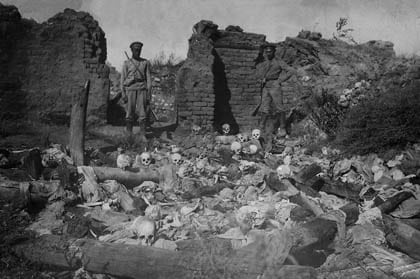
“That the successor state to the Ottoman Empire continues to deny the historical reality of the Armenian Genocide surely raises concerns for the safety of the Armenian Communities in the disputed territories,” wrote the AMEC.
Pope Francis likewise has urged for peace in the region
A ceasefire between the two states was mediated by the Russian Federation on 10 October but reports are that the conflict has since resumed. Pope Francis likewise has urged for peace in the region.
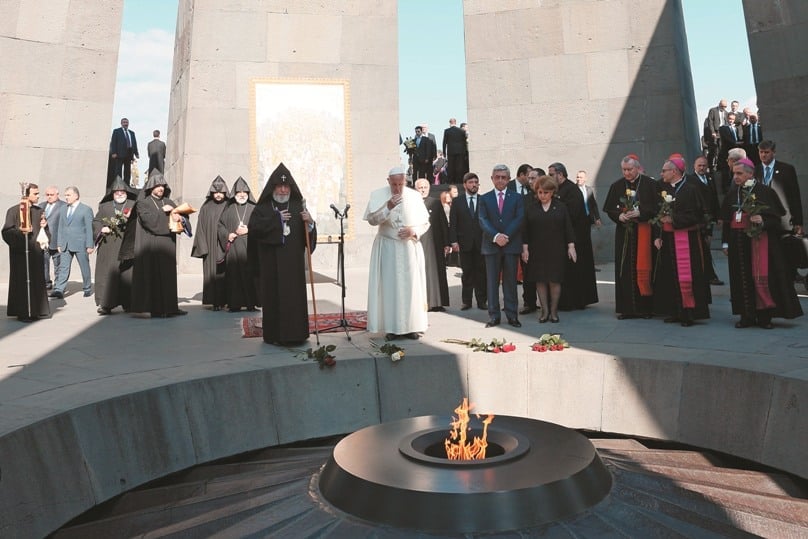
“As representatives of the Christian Communities, we abhor injustice and violence and we call upon all those who determine the affairs of nations to move swiftly and definitely to restore order and to ensure continued peace,” wrote the AMEC.
While The Republic of Artsakh is not recognised by any member-state of the United Nations, the Legislative Assembly of New South Wales in 2012 passed a motion recognising its independence from Azerbaijan.
Related Stories:
